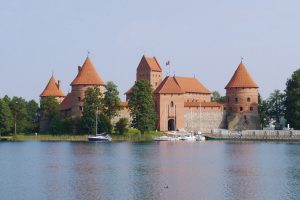Germany issues an eighth online slot licence

Jokerstar has picked up a licence to offer online slots throughout Germany.
Germany.- After a long delay, the online slot licences are positively flying out in Germany. Relative newcomer Jokerstar is the eighth business to gain a licence. It’s been approved to operate via jokerstar.de.
Jokerstar was founded by the land-based gaming hall operator Kling Automaten last year and is a smaller operator than most of those who have gained licences so far. Gauselmann Group already has several licences for its brands, while MyBet and Tipwin have also gained licences.
Novomatic’s subsidiary BluBet Operations gained a licence for its novoline.de domain last week. It already had a licence for its Mernov joint venture with Merkur.
Germany’s new online gambling legislation came into force on July 1 last year, introducing a tight regulatory regime for slots with a €1 stake limit and a 5.3 per cent tax on turnover. Licensing has been slow, with the first online slots licences not issued until earlier this year.
The first operator to receive a licence was Mernov, a joint venture between Merkur and Novomatic that has since changed its name to Deutsche Gesellschaft für Glücksspiel (DGGS). Licences followed for Tipwin and Mybet in June. The state of Saxony-Anhalt has since said that it has approved another nine operators but didn’t name them.
Saxony-Anhalt’s State Administration Office remains responsible for online slots and poker licensing until the new regulator Gemeinsamen Glücksspielbehörde der Länder (GGL – The German Federal States’ Joint Gambling Authority) takes over on January 1, 2023.
With its licensing process taking so long, some eight applications have been withdrawn – including that from Kindred’s Unibet which has turned its back on Germany for now due to the slow licensing progress and the tight restrictions in the regulated market. Only one application has actually been rejected by the office.
The State Administration Office recently said it had referred 25 online gaming operators to the public prosecutor’s office for offering gaming without a licence in the last year. It said it had checked 871 websites and investigated 148 cases of illegal gambling and 90 cases of illegal gambling advertising.
Meanwhile, the GGL has already taken over enforcement duties, taking steps to begin to block IP addresses and payments to unlicensed operators. The regulator also plans to devise an early detection system for gambling harm and to create a centralised complaints and whistleblowing system that the public will be able to use to report gambling “irregularities”, advertising violations and suspicions of illegal gambling.











